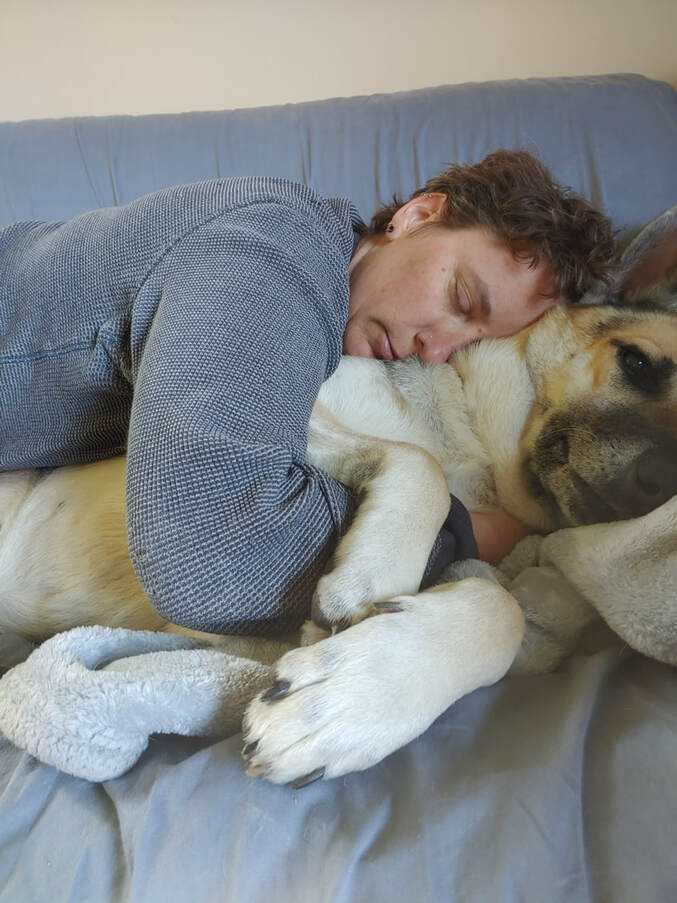|
Oh, dear ones, how normal is it for big feelings to sometimes hit hard as we navigate Corona times? Stomach-dropping fear anyone? Roiling, buzzing anxiety? Chest-gripping grief? I invite you to judge nothing—by which I always mean NOTICE that you're judging it and seek to release judgment: welcome yourself to the human race; meet whatever you're experiencing now knowing you can be feeling it only if millions of others feel it too. I offer you 2 resources here:
1. The HEART MEDITATION is deeply calming and connecting. You can do it either in the actual moment of meeting a strong emotion or when you simply choose to settle into the heart realm and find what's there. The meditation invites you to keep dropping in where perhaps you haven't yet—or never as you are right now in this fresh, all-things-new-all-things-possible moment. 2. The written part follows. STEP-BY-STEP TACTICS TO GET OUT OF YOUR OWN WAY when strong emotions hit and you feel disconnected from love. 1. NOTICE AND MEET RESISTANCE. This really means notice it and let it be there. You will resist. So get okay with that. But know that if you run with the resistance (otherwise stated, ignore it and let it dictate what you do or don't give attention to), you can't sort of reach around it to stroke and soothe what you're feeling. Resistance will take many forms, and may look like:
2. LOCATE YOUR WILLINGNESS TO MEET WHAT YOU'RE FEELING. You don't have to make resistance go away! Once you notice it, accept that it's here; accept that we all resist. Then you can pause with it, breathe into it, and find your willingness to meet the strong emotion itself. Beyond your resistance is the thing that will set you free. Here, that means that beyond resistance is the emotion for you to meet directly by dropping in with it and feeling it fully. You might simply tell yourself: Something feels awful here. Because something that feels awful is here, I'm willing to meet it. I'm willing to feel it. I can't just will it away, so I'll drop in to see what it has for me. I'm willing to feel bad, for now. I'm willing to feel whatever any human being might feel. I'm willing not to abandon myself here and now. 3. FEEL WHAT YOU'RE FEELING AS YOU INTEND CONNECTING TO LOVE. Every emotion carries with it a call to love. Wow. No matter how painful a feeling, no matter how close to the fear or hate end of the spectrum it may register, it only wants to call you back to yourself, back to self-acceptance, back to love.
It's actually amazingly easy to feel what you're feeling—as opposed to analyzing it, thinking about or mulling over the related story and all its gory details, or letting it engulf you in a toxic way. You know what I mean by that toxic engulfment? You're there if you feel wretched with it; if you're despairing (even to the point of questioning your life's worth or declaring yourself hopeless for living it well); if you're steeping in your worst beliefs about yourself, others, your prospects, life itself. You're there if you feel all alone. So how do you feel a feeling? This post will take you there (This is what X feels like), even as it connects you to all the other beings who feel it too, so you don't get lost in being alone or in feeling singular in or singled out by what you're feeling. Chapter 3 of Scooch! offers a lot on that topic in the Mind the Pain Body section (ch. 3 covers Mind the Pain Body, Tend the Mind). More than anything, you drop in. You give yourself to locating IN THE BODY the specifics of what you feel:
Be a scientist collecting data on the body. See if you can do that without a lot of words or naming (or work up to that as you experiment with this method). Ultimately, all you're trying to do is FULLY feel whatever you're feeling, and feel it where it is—in the body. Call on the breath as you do this. FEEL the movement of the breath as it already registers in your body. Then gently direct your breath to the place of pain. That's all the pain body wants: awareness and breath. So drop in. Fully. Drop into the pain as you would something that feels great, relaxed, letting it have you: think of easing down into a jacuzzi and letting go, releasing all resistance. 4. SEEK TO LOVE WHAT YOU'RE FEELING—AND LOVE YOURSELF FEELING IT (HINT: neutrality is a great support). This heart meditation (mentioned & linked above) will walk you through. Read on for some words to explain it. Start with simply intending love. Remember that love doesn't need ANYTHING put on or forced. It doesn't need you to try to locate some approximation of feeling love. Love doesn't necessarily come with any particular feeling attached. You don't need to rev up inner flavors of sweet or kind or whatever loving means to you—or rather, to your disconnected self. Just let love be a powerful, neutral force that doesn't need you to cough up anything in order to show up and make itself known. It's already who you are in your essence. It already drenches the entire Universe. So simply intend connecting to that. Since you're already dropping into the feeling and breathing it (if you've followed instructions in #3), now bring your awareness to your heart center and invite love. Relax muscles you don't need on the out-breath so you stay out of effort, and simply breathe in the intention, the invitation, the truth of love's inherent location everywhere—accessible from this specific area of the body (aka, the heart chakra). You've JUST been exploring a feeling. See if you can head from that feeling/sensation to some neutral acceptance, even expectation, of love. Love as ever-present, inherently yours, beyond any need to earn it. Scooch that way and don't worry about getting there. But let me stress the idea of NEUTRAL. It's powerful to just let love be, call it in, let it come as it will as you sit here as you are: you need ask nothing specific of love; it asks nothing of you except the letting go, the allowing. You'll love yourself better if you cultivate some connection to neutrality inside yourself, especially in painful or self-disapproving moments. It's neutral, in fact—because these are normal human things—to feel strong emotions, to feel out of control, to be confused and in the dark, to have a bad taste in your mouth, to have a wildly beating heart, to fear you won't be okay, to disconnect from your best self, to lose track of all hope, to not know what to do next. It gets easier to drop self-judgment if you can hold a neutrality toward anything you've habitually disapproved of (in yourself or others). So I'll leave you there. This is a practice. Make it an experiment (perhaps a grand experiment while you're at it). Let it take you wherever it will. Come back and seek to meet yourself, your emotions, the heart space again and again and again. Especially during intense, hard times of collective fear, grief, and letting go, as we find ourselves living in now in the time of Corona. Love & blessings, Jaya
0 Comments
The short version of this post has already appeared on my Facebook page—that glorious cyber-venue that has kindly forced me to cut to the chase and just say it in 849 characters or less (or they amputate with a hacksaw and plug in “See more” plus those three dubious dots that most who live with dignity and purpose won’t touch).
Right here. Facebook post/cut-to-the-chase version: I'm fascinated by the outright aversion people sometimes feel toward the concept of self-love. Like it's a weird, freaky, even shameful thing to indulge in. If this is you, I invite you to the least gushy version of self-love you can scooch into. Don't imagine a beatific face beaming at you & telling you you're a perfect divine nugget-beam of love & light. How about just sitting kindly, even neutrally, with what you're hating right now, whatever you disapprove of or think isn't okay about a sensation inside you, a story of you, a cringy glimpse of yourself someone else tossed your way when you weren’t ready to duck? Could you just watch that dispassionately & tell yourself, “Hey, typical human stuff, Self. It's okay. There’s nothing wrong with you.” The beginning of the end of self-abandonment. I could now go for more brief instead of expounding. Haiku anyone? Dabbing my heart clean-- Fool to have poured honey there. Damn tissue in shreds. Bullet points, then (because there’s always more to say, isn’t there, especially about what it means not to abandon yourself ever again, and bullets can make a bunch of brief points in a row): What does it even mean to abandon yourself? You’re in self-abandonment when
Simple antidotes? In a nutshell, stave off self-abandonment by living in self-honoring ways and responding quickly when something feels off. Catch yourself in self-abandonment—kindly, not harshly. Appreciate that you’re getting conscious about what needs your conscious attention. This allows you to course-correct quickly. Don’t allow momentum to build where bad feelings are concerned.Respond to them more quickly at ever more subtle levels. Interrupt what doesn't work for you and go for what feels truer and better. Tell the truth to others. Have boundaries and speak them to others whether they’re thrilled with them or not. Don’t drop your boundaries when people push against them, and don’t freak out, either. That’s what people do, so someone will; no need to take it personally. But there’s a great need—your own well-being and authentic living are at stake—for you to hold any boundary that you’ve gotten clear about needing to draw. (Need support for boundaries? My amazing friend and colleague Kelli Younglove—aka, the Boundaries Barista--has a special gift with and a self-paced online course on boundaries.) Put yourself to bed kindly, so you can wake up trusting life, and trusting that you’re on your own side. Remember who you are, and don’t buy old stories from others. (Watch the family-of-origin definitions coming at you, and duck! When you need to, stay away entirely. You get to define you.) Be willing to show up for whatever's happening. I'll close with an illustration of this point from Facebook, posted last May: I refuse to carry around the feeling that this shouldn't be happening, this day shouldn't be going how it's going, this snafu is such a detour or setback, etc. etc. If it's happening, here it is. I want to align with it. I know I'm not aligned if I feel frustrated, I'm frowning or tensing, I'm getting irritated with human beings. Catching any of these is my cue to pause, reset, allow. What's happening is what's happening, never mind how unpleasant, unexpected, unwanted. I trust that whatever life hands me is worthwhile for me to give myself to. What could I benefit from letting go? The illusion of control, the religion of efficiency, the expectation customer-service people should make it all better at once? I want to show up for that. I want to show up for my life, wherever it takes me right now. Keep showing up for yourself, whatever’s up, however you feel: self-abandonment no more. Love & blessings, Jaya P.S. Here's a longer post on getting a reset through grounding & breathing then reaching for a good question. A great way to get out of RUMINATION. Put yourself to bed kindly, lovingly, as you would put to bed a beloved child. Would you put a child to bed hissing in their ear about what’s wrong with their face, how scary the world is, why they won’t amount to much? Just a guess, but you might instead go with a lullaby, maybe a good story, sweet murmurs of love—anything kind, gentle, and comforting. I invite you to put yourself to bed that way too. As someone who used to struggle with insomnia and take all my woes to bed with me, I’ve loved coaching others in making bedtime truly kind and likely to promote the rest we all deserve. Five easy steps follow, including in step 2 the ABC’s of addressing what needs addressing so you can put it all down for the night! 1. Sleep is the best reset button: make conscious, intentional use of its power. Take sleep very seriously as the most fabulous (and free!) reset button at hand. Part of what sleep does is pause your current sense of identity and your preoccupations with your life’s conditions to date. If you let it, it can clear the slate every day, allowing you to come back to the truth of who you are—which has nothing to do with these current conditions. By not taking today’s batch of woes, fears, critiques to sleep with you, you allow a new opening each new day, upon waking, to the truth of who you are, and all that this can translate to in the realities of everyday life. Go to bed with the intention to release, rest, and rejuvenate—intention is powerful. So don’t stumble to bed in a cloud of whatever’s-on-your-mind when you’re ready to drop. Be conscious about what you put down and let go, and what you take to bed with you. 2. Do not admit worries or to-do lists into the bedroom: Easy as ABC. It’s typical to lie in bed reviewing the worst of today and fretting over tomorrow. Maybe throw in a slo-mo replay of that awkward misstep at the dog park, flash to your favorite childhood humiliation, then take another spin around the globe as bleakly highlighted by the news industry. Ready for something kinder? Make it a rule (or a grand experiment) to take none of that to bed—not admitted. Here come the ABC’s for minding before bedtime what actually needs your attention. Ideally, consciously give these your time earlier in the evening, then let what occupies you for an hour or two before bed be what you enjoy, what nourishes you, what you love to do and think about. However, if five minutes at the tail-end of the day is all you’ve got sometimes, take five before bedtime grooming. Just sit with paper and perhaps a calming beverage to give a nod to today’s completion and jot down a few notes for tomorrow. Address practical matters. If it serves you, glance at tomorrow and write down to-do lists and priorities. Put the thing thrice remembered and forgotten on the calendar so you trust you’ll get to it. (Now forget about that oil change or IRS call in good conscience.) Dash off the text that’s really not so hard to write—but does crack the ice that keeps you stuck. In other words, if you can do one quick thing to begin or complete a task (rather than make a note about it), do that. Now you’ve done what you’ve done for this day: it’s enough, and it’s all good enough. Be with emotional stuff. If something emotional from the day needs processing, journal it, talk it out, or take it to a bubble bath. Set up future bolstering by sending the scheduling email to the right support professional or making a date with a friend. Since you’re (absolutely) not going to take it to bed with you, do make it worth your while in the evening (your heart is worth your own time and attention). Set yourself up to let tender matters go during sleep hours by letting yourself know they’re being tended to. Consciously be done with today and open to tomorrow’s total potentiality. Go to bed with nothing in tow about today or tomorrow: you’re done. You can reinforce this on the physical level by moving slowly and deliberately as you groom and change for bed. When thoughts of this day or the next offer themselves (and you know thoughts—they will), don’t engage. Just say, “I release you” or “Done!” or “Shop is closed.” There’s nothing more to do, fix, or figure out. Things in flux? Feeling like a work in progress? Of course. That’s how a human life goes. Your day is still complete; your mind has no more job to do beyond aligning with rest. I like to start watching my breath as I head bed-ward so I’m already cultivating a meditative mindset. This, too, supports treating sleep as a full reset, entered into consciously. As you step into your bedroom, make it a ritual by saying out loud, “This day is complete. Tomorrow, all things new, all things possible.” As you say this (or your own phrase that sings to you), believe it as much as you can. Feel it, as much as you can. (It’s enough.) 3. Only good thoughts allowed in bed, and only briefly. Lying in bed, if you must think at all, only review what you love about your life, what feels good, what went right in your day. (Remember, you’re putting yourself to bed as you would a beloved child.) Flash to moments of loving the beauty and brilliance of people, plants, and critters in your daily world—your own bright, shiny moments included. Honor your completions and notice what was satisfying or glorious. Review hugs and hilarity, easy connections. Whatever nice things you pull out to polish mentally, please keep even this kind of thought to a minimum. Some people love a good gratitude list, so reel off a few gems, if you will, but get in and get out. 4. Drop into love, and let love drop you into sleep. For whatever conscious time you’ve got left (whether seconds or hours, depending on your tendencies or the day), give your full weight to the mattress and to gravity, releasing every muscle to all that supports you. You are held. Give yourself to love. Think in terms of lying in the arms of love. You are a child of the Universe: see yourself as Source sees you as you drop into the unconscious realm. Call on whatever you know of love right now and let everything else go. Love is ever-available, as it’s the essence of who you are. (If this trips you up on a bad day or through a hard era, create spaciousness here by looking away from being loved or receiving love—hard pass on a life review of love, please. Just hold the feeling of love in the easiest, most innocent way—even your love for an animal, if that creates no resistance, or for your favorite painting, tattoo, or tree—and allow that to be enough.) 5. Use the breath to support your intentional letting go. Make a lying-down meditation of your last conscious moments by watching the breath. Follow the breath all the way in and all the way out. I call the breath the only balm you can apply from within: feel it as a healing salve moving through you, easing you into sleep, or simply supporting your rest. (Don’t worry about how much or what kind of sleep you’ll get—breathe into full rest.) Following the breath will help you keep out of your head, too. Remember that the mind does what it does, so it’s not about staying with the breath or staying out of thoughts—just come back to breath right now, one more time, now, and now, and now. It’s working if you’re willing to find the breath one more time in this moment, as many times as it takes. Sometimes if there’s something compelling or tricky in my world and I catch myself thinking about it in bed, I just remind myself it’s not time to think: it’s time to lie in the arms of love; it’s time to follow the breath and appreciate how it calmly ushers me into rest and sleep. I often then notice that I haven’t even felt the mattress yet, so I tune in to the physical sensations of giving myself to gravity, and this allows my return to these reliable and nurturing bedtime tactics. Rest well, dear one. Love & blessings, Jaya
|
Categories
All
|






 RSS Feed
RSS Feed